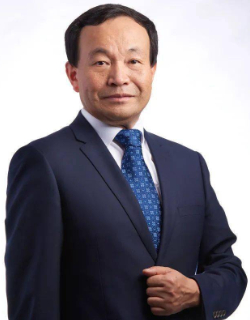
A concept photo of a futuristic city Illustration: VCG
Editor's Note:
In recent years, remarkable progress has been made in building the Guangdong-Hong Kong-Macao Greater Bay Area (GBA) in South China. What achievements have been attained in urban development, technological innovation and industrial clusters during the development of the GBA? The Global Times invited leading figures from various sectors to share their views on the competitiveness of the GBA.

Yu Dapeng, an academician of the Chinese Academy of Sciences Photo: Courtesy of Yu Dapeng
Quantum computing possesses unparalleled computational capability and can tackle problems that are beyond the reach of traditional computers. It is often hailed as the next frontier of technological advancement in global competition, and it's a field where China is not just participating but also striving to grab a leadership position.
China's competitive edge in quantum computing is evident but it must be nurtured with a clear and innovative mind-set.
Quantum technology stands as a strategic high ground in competition among global players. China, despite its late start compared with some developed countries, has made significant strides, thanks to robust national-level support and a well-trained team of scientists with a global perspective.
Despite some Western politicians and media outlets often hyping the "China threat" narrative, China has been committed to developing itself through technology innovation, eventually earning the "scientific powerhouse" title.
China's progress in scientific research can't be ignored, and such efforts can be attributed to substantial government investment in research and development, as well as the cultivation of a vast pool of talent.
While China leads in quantum communication research, it is in a neck-and-neck race with major competitors in quantum computing and still has ground to develop quantum precision measurements. This critical gap requires more long-term dedication, calling for greater vigilance and more focus on innovation, especially in the current digital age as market demand mounts for computational power.
The Chinese leadership has recently called for accelerated efforts to build China into a global leader in science and technology, and achieve self-reliance and self-improvement in sci-tech at higher levels. Overcoming the blockade imposed by some Western countries on quantum technology has become a primary task for Chinese scientists.
Despite initial setbacks due to trade restrictions on China imposed by the West on high-tech products, China's long-term goal of achieving greater independence in key technologies may slow down, but it will never stop.
Significant progress has been made in achieving domestic substitution for cutting-edge equipment, with phased breakthroughs in developing China's own lithography machines and cryogenic devices.
A number of Chinese semiconductor manufacturing equipment makers have rapidly emerged as important players in the country's efforts to significantly reduce the country's reliance on imported tools.
For many years, Chinese research institutions and research-oriented universities have been dedicated to advancing China's quantum technology and promoting the localization, high-end capabilities and independent control of the core equipment.
Shenzhen, a leading innovation hub in the Guangdong-Hong Kong-Macao Greater Bay Area (GBA), has made significant strides in cutting-edge technologies such as quantum computing, positioning itself as a key player in the area's scientific and technological advancements. The region holds the potential to lead in research and development.
In the near future, a world-class quantum research center could come into being in the GBA, featuring robust innovation in science and technology.
The author is an academician of the Chinese Academy of Sciences. bizopinion@globaltimes.com.cn



